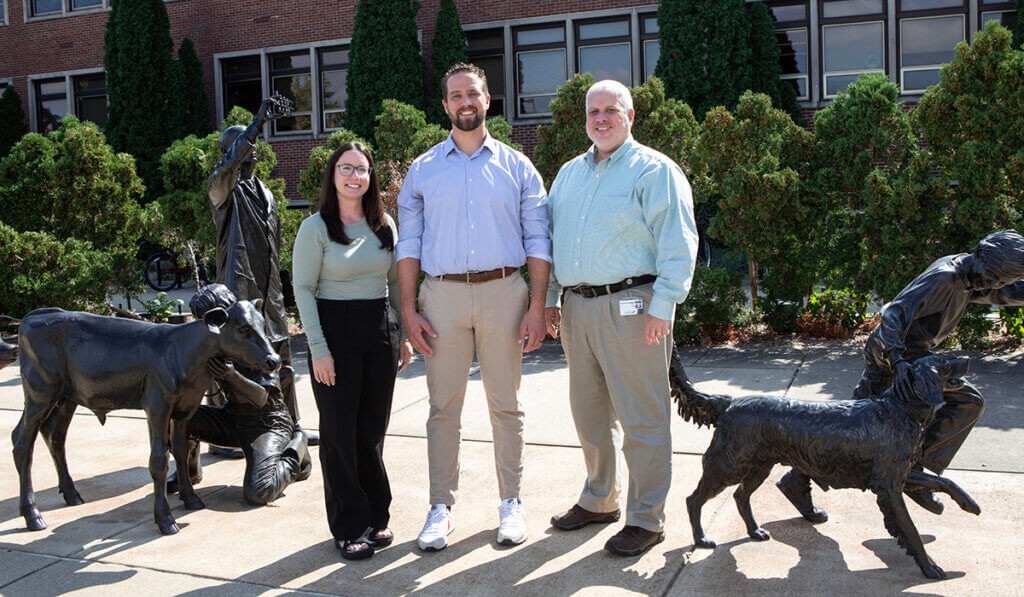
The Purdue University College of Veterinary Medicine has established a new resource designed to enhance teaching and learning. That resource is the Veterinary Education Support Team, or VEST, which combines the skills of three of the college’s staff members: Senior Instructional Designer Brett Creech, Instructional Designer Lianne Beliveau-Strom, and Student Success/Learning Specialist Corey Sanchez.
The stated mission of VEST is to promote learning and teaching excellence in the college by providing robust academic support and applying research-based instructional design and technologies, inclusive practices and student-centered pedagogy. In carrying out that mission, the team strives to strengthen collaborative and impactful relationships between teachers and learners.
VEST provides a variety of services, grouped according to the team’s two areas of focus:
Learning Support Services
- Individualized academic coaching
- Facilitation of peer-to-peer support programs, such as the Veterinary Student Resource Center and the Remediation Peer Mentor program
- Professional education transition support
- Evidence-based learning and study sessions
- Educational technology training and support (Learning Management System (LMS), assessment tools, study apps, etc.)
Teaching Support Services
- Educational technology training and support (LMS, assessment tools, classroom response system, etc.)
- Consultation on implementing active learning
- Consultation on utilizing outcomes-based instructional design and assessment
- Education seminars to disseminate best practices in pedagogy
- Development of instructional content and educational experiences through the implementation of learning theory and instructional strategies
- Feedback on faculty and staff teaching aimed at supporting dynamic instruction in the classroom, lab, and clinic
VEST seeks to support both learners and instructors through these services aimed at improving learning outcomes and professional development. The team can help with such projects as implementing a flipped classroom, fostering student engagement in the classroom, recording and editing video projects, creating interactive online learning projects, assisting with learning technology in the classroom, observing instruction to make suggestions for improvement, preparing well written learning objectives, and aligning assessments with learning objectives.
To reach out to the team, email them at pvmvest@purdue.edu. Click here to learn more about VEST, including an informational video showing examples of eLearning projects VEST can help develop as well as past projects (a Purdue Veterinary Medicine SharePoint login is required to access).
